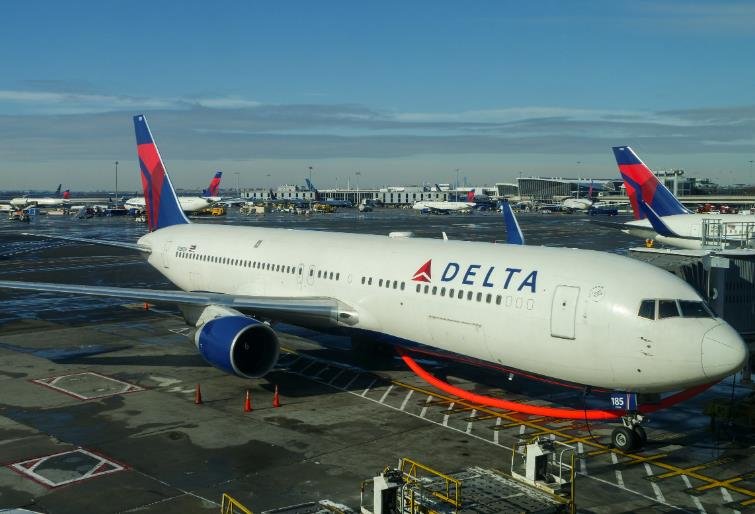Delta Airlines has announced the suspension of its flights between New York’s John F. Kennedy International Airport (JFK) and Tel Aviv, Israel, through December 31, 2024. This decision comes in response to the escalating conflict in the Middle East, which has raised significant security concerns. The airline has issued a travel waiver for affected passengers and is continuously monitoring the situation to ensure the safety of its customers and crew.
The suspension of flights between JFK and Tel Aviv is expected to affect a large number of travelers, particularly those with plans to visit Israel during the holiday season. Delta Airlines has assured passengers that they will be notified of the changes and provided with options for rebooking or refunds. The airline is committed to minimizing the inconvenience caused by this suspension and is working closely with customers to address their travel needs.

Delta’s decision to suspend flights is part of a broader trend among international airlines, many of which have also halted services to the region due to the ongoing conflict. The safety of passengers and crew remains the top priority for Delta, and the airline is taking all necessary precautions to ensure that its operations are conducted in a secure environment. Travelers are advised to stay informed about the latest developments and to check for updates on their flight status regularly.
The travel waiver issued by Delta allows passengers to rebook their flights without incurring additional fees. This flexibility is intended to provide travelers with peace of mind and to facilitate their travel plans during this uncertain period. Delta is also offering refunds for those who prefer to cancel their trips altogether, ensuring that customers have multiple options to manage their travel arrangements.
Broader Implications for the Airline Industry
The suspension of flights by Delta Airlines highlights the broader implications of the ongoing conflict in the Middle East for the global airline industry. Security concerns have prompted several airlines to reevaluate their routes and schedules, leading to widespread disruptions in international travel. The situation underscores the vulnerability of the airline industry to geopolitical events and the need for robust contingency plans to address such challenges.
Airlines are facing significant operational and financial pressures as they navigate the complexities of the current security environment. The suspension of flights to high-risk regions not only affects revenue but also disrupts the travel plans of thousands of passengers. In response, airlines are enhancing their risk assessment protocols and working closely with international authorities to ensure the safety of their operations.
The ongoing conflict has also highlighted the importance of effective communication between airlines and their customers. Delta’s proactive approach in issuing travel waivers and providing timely updates is a critical aspect of managing the impact of flight suspensions. By keeping passengers informed and offering flexible options, airlines can maintain customer trust and loyalty during challenging times.
Future Outlook
Looking ahead, the future of flights between JFK and Tel Aviv remains uncertain, contingent on the resolution of the conflict in the Middle East. Delta Airlines has committed to continuously monitoring the situation and will make decisions based on the latest security assessments. The airline’s priority is to resume operations as soon as it is safe to do so, ensuring that passengers can travel with confidence.
The broader airline industry is likely to continue facing challenges as geopolitical tensions persist. Airlines will need to adapt to the evolving security landscape and implement measures to mitigate risks. This includes enhancing collaboration with international security agencies, investing in advanced security technologies, and developing comprehensive crisis management strategies.
In the meantime, travelers are encouraged to stay informed about the latest developments and to remain flexible with their travel plans. The suspension of flights is a reminder of the unpredictable nature of global events and the importance of preparedness. By staying vigilant and adaptable, both airlines and passengers can navigate the uncertainties of international travel.
